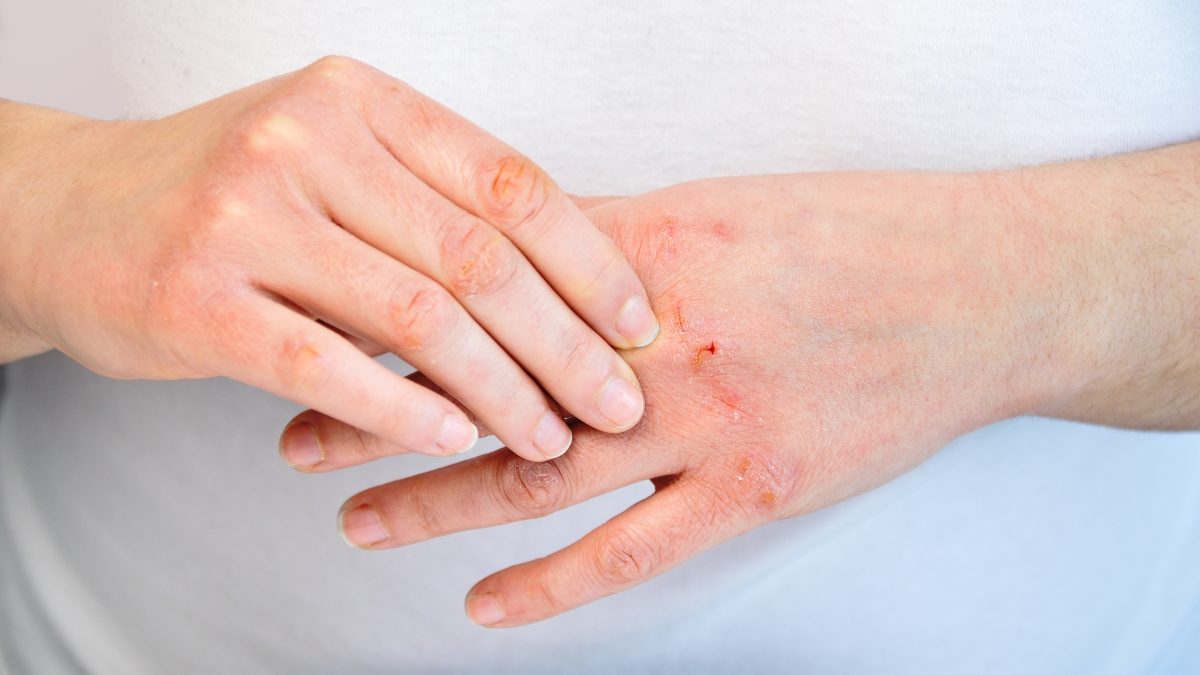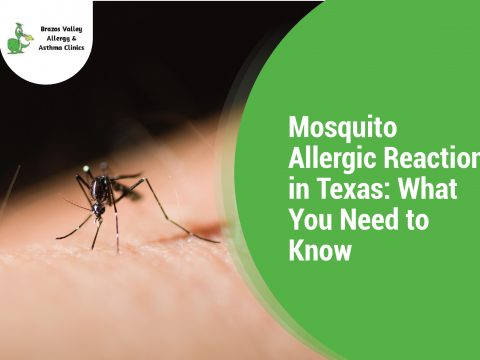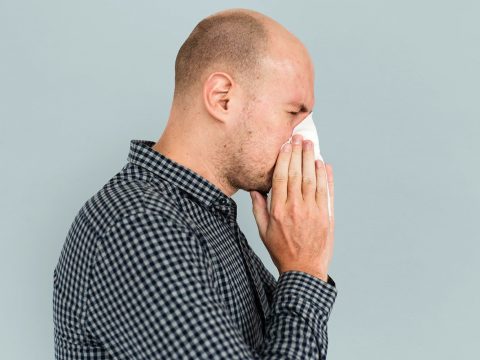- 979-485-9287
- office@bvallergy.com
-
 979-251-7804
979-251-7804
Atopic Dermatitis (Eczema)

Getting to Know Angioedema (Allergic Swelling)
April 2, 2019
Anaphylaxis Allergy
May 1, 2019Overview
There are many different types of eczema. However, the most common type of eczema is atopic dermatitis. According to the National Eczema Association, 18 million American adults have atopic dermatitis. In addition, according to Stanford Children’s Health, eczema occurs in approximately 10% to 20% of all infants. Of these children, nearly half will still have eczema as they grow old. Roughly 60% of children may have some form of eczema throughout their lifetime.
Atopic Dermatitis
Atopic dermatitis (eczema) is a skin condition that makes your skin becomes inflamed, itchy, and red. It is common in children but can occur at any age. Atopic dermatitis is long-lasting (chronic) and tends to flare periodically. People who have eczema can also have other allergic reactions such as asthma or hay fever. As of today, there has been no cure found for atopic dermatitis. But self-care measures and other treatments can relieve the pain and itchiness.
Parents who have eczema are more likely to have children with eczema. There are different triggers that can make eczema worse such as environmental stress, allergies, and cigarette smoking. It is important to note that atopic dermatitis is not contagious.
Atopic Dermatitis Symptoms
The distribution of eczema may change with age. Most people will have their first sign of eczema before they are five years old. In addition, signs and symptoms vary from person to person. In infants and young children, symptoms are usually located on the face, elbows, and knees. For children and adults, signs of atopic dermatitis can be found on the arms, hands, feet, and on the back of the knees.
Here are some of the symptoms of atopic dermatitis:
- Mild to severe Itching of the skin
- Scaly, dry, or thickened skin
- Small, raised bumps that may leak fluid when scratched
- Cracked skin that hurts
- Red to brownish-gray patches in the different parts of the body
- Crusting of the skin after scratching
- Round blisters that merged together
Contact your allergy doctor if the inflammation in your skin doesn’t respond within a week to over-the-counter treatments like hydrocortisone creams. If this occurs, you may need a stronger form of treatment. Furthermore, consult our doctor if you develop numerous painful, small, fluid-filled blisters in the areas of eczema as this can be a serious skin complication.
Atopic Dermatitis Causes
Doctors are not really sure what causes atopic dermatitis. However, it is a genetic family trait. As mentioned earlier, parents who have eczema will likely have children who will develop the condition. There are certain genes that can cause some people to have extra-sensitive skin.
Here are the things that can trigger eczema:
- Environmental stress
- Heat and sweat
- Cigarette smoking
- Cold and dry climates
- Contact with irritating substances
- Allergens such as dust mites, animal hair, and saliva
- Hormonal changes
Atopic Dermatitis Treatments and Medications
There are many ways to treat atopic dermatitis. However, the condition can be persistent and you may need to try various treatments to control it. It is important to be able to diagnose the condition early so that the doctor can recommend some effective treatments for you.
Medications. You can apply creams that control the itching and help repair your skin. Your doctor may prescribe a corticosteroid cream or ointment. Apply it as instructed by your doctor. If you have a bacterial infection, your doctor might give you an antibiotic cream to fight the infection. In severe cases, you might also take oral drugs to control the inflammation.
Therapies. One effective way of treating severe atopic dermatitis involves wrapping the affected area with topical corticosteroids and wet bandages. Sometimes this is done in hospitals, but you can ask your doctor how to try this method yourself at home. You can also try light therapy. This treatment is used for people who don’t get better with using topical treatments. Light therapy involves exposing the skin to controlled amounts of natural sunlight. Talking with a therapist may also help people who are embarrassed with their condition.
Atopic dermatitis can be persistent and needs to be treated immediately to prevent severe skin complications from happening. If you’re looking for an allergy clinic in College Station, you may schedule a meeting at Brazos Valley Allergy & Asthma Clinics. They provide services for people who have problems with allergies, asthma, and their immune system.
FAQs
Can atopic dermatitis be cured?
As of today, there has been no cure found for atopic dermatitis. However, there are a couple of treatments and medications that can relieve the pain and itchiness.
Is atopic dermatitis dangerous?
It can be dangerous if it is exposed to viral skin diseases such as cold sores or genital herpes since it puts you at higher risk of having the herpes simplex virus.
What triggers atopic dermatitis?
There are different triggers that can make atopic dermatitis worse such as environmental stress, allergies, and cigarette smoking.
How can I treat dermatitis at home?
You can apply over-the-counter corticosteroid creams or ointments on your skin. Make sure to follow your doctor’s instructions when applying them. You can also ask your doctor on how to wrap the affected area with topical corticosteroids and wet bandages so you can do it in your home.
REFERENCES:
NCHMD
WebMD
Mayo Clinic




